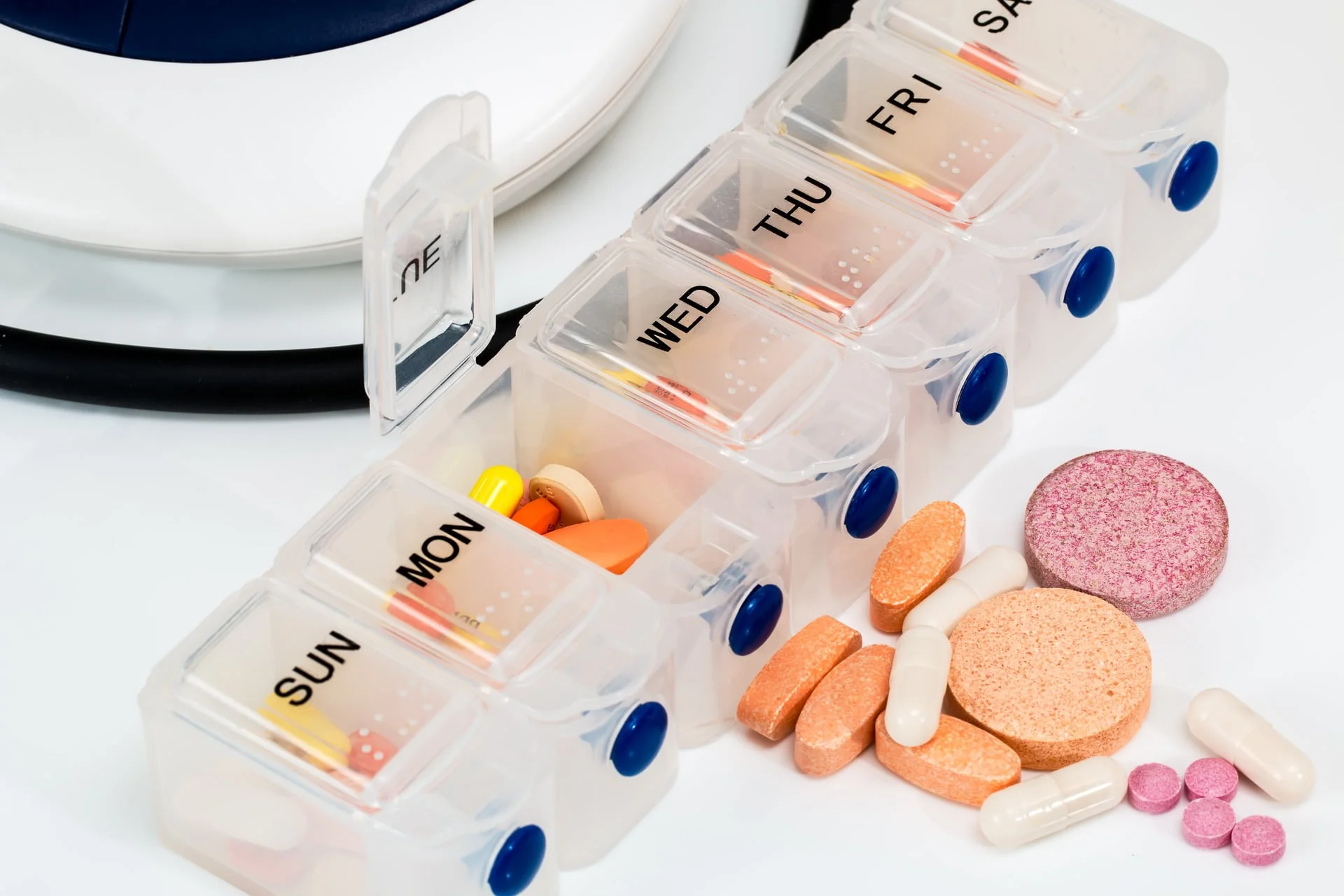Here are some of the key vitamins and minerals that are important for senior health:
- Calcium is essential for strong bones and teeth. It also helps to prevent osteoporosis, a condition that causes bones to become weak and brittle. Good sources of calcium include dairy products, leafy green vegetables, and fortified foods.
- Vitamin D helps the body absorb calcium, so it is important for bone health as well. It also plays a role in the immune system and helps to protect against some types of cancer. Good sources of vitamin D include sunlight, oily fish, and fortified foods.
- Vitamin B12 is important for energy production, nerve function, and red blood cell production. A deficiency in vitamin B12 can cause fatigue, weakness, and memory problems. Good sources of vitamin B12 include meat, fish, poultry, eggs, and dairy products.
- Folate is important for cell growth and development. It is also needed for the production of red blood cells. A deficiency in folate can cause anemia, fatigue, and other health problems. Good sources of folate include leafy green vegetables, citrus fruits, and beans.
- Potassium is an important mineral for heart health. It helps to regulate blood pressure and reduce the risk of stroke. Good sources of potassium include fruits, vegetables, and whole grains.
- Magnesium is a mineral that helps to regulate muscle and nerve function. It is also involved in energy production and the metabolism of carbohydrates, proteins, and fats. Good sources of magnesium include leafy green vegetables, nuts, and seeds.
In addition to these vitamins and minerals, there are a number of other nutrients that are important for senior health. These include zinc, selenium, vitamin C, and antioxidants. It is important to talk to your doctor about your individual needs so that you can get the right balance of nutrients in your diet. The long list of vitamins and minerals are as follows:
Vitamin A. Food Sources: Vitamin A can be found in products such as eggs and milk. It can also be found in vegetables and fruits, like carrots and mangoes.
- Men Age 51+: Most men 51 and older should aim for 900 mcg RAE.
- Women Age 51+: Most women 51 and older should aim for 700 mcg RAE each day.
Vitamin B1 (Thiamin). Food Sources: You can find vitamin B1 in meat – especially pork – and fish. It’s also in whole grains and some fortified breads, cereals, and pastas.
- Men Age 51+: Most men 51 and older should aim for 1.2 mg each day.
- Women Age 51+: Most women 51 and older should aim for 1.1 mg each day.
Vitamin B2 (Riboflavin). Food Sources: You can find vitamin B2 in eggs and organ meat, such as liver and kidneys, and lean meat. You can also find it in green vegetables, like asparagus and broccoli.
- Men Age 51+: Most men 51 and older should aim for 1.3 mg each day.
- Women Age 51+: Most women 51 and older should aim for 1.1 mg each day.
Vitamin B3 (Niacin). Food Sources: Vitamin B3 can be found in some types of nuts, legumes, and grains. It can also be found in poultry, beef, and fish.
- Men Age 51+: Most men 51 and older should aim for 16 mg each day.
- Women Age 51+: Most women 51 and older should aim for 14 mg each day.
Vitamin B6. Food Sources: Vitamin B6 is found in a wide variety of foods. The richest sources of vitamin B6 include fish, beef liver, potatoes and other starchy vegetables, and fruit (other than citrus).
- Men Age 51+: Most men 51 and older should aim for 1.7 mg each day.
- Women Age 51+: Most women 51 and older should aim for 1.5 mg each day.
Vitamin B12. Food Sources: You can get this vitamin from meat, fish, poultry, milk, and fortified breakfast cereals. Some people over age 50 have trouble absorbing the vitamin B12 found naturally in foods. They may need to take vitamin B12 supplements and eat foods fortified with this vitamin.
- Men Age 51+: 2.4 mcg every day
- Women Age 51+: 2.4 mcg every day
Vitamin C. Food Sources: Fruits and vegetables are some of the best sources of vitamin C. Citrus fruits, tomatoes, and potatoes can be a large source of vitamin C.
- Men Age 51+: Most men 51 and older should aim for 90 mg each day.
- Women Age 51+: Most women 51 and older should aim for 75 mg each day.
Calcium. Food Sources: Calcium is a mineral that is important for strong bones and teeth, so there are special recommendations for older people who are at risk for bone loss. You can get calcium from milk and other dairy, some forms of tofu, dark-green leafy vegetables, soybeans, canned sardines and salmon with bones, and calcium-fortified foods.
- Men Age 51+: Men age 51-70 need 1,000 mg each day. Men age 71 need 1,200 mg each day. Don’t consume more than 2,000 mg each day.
- Women Age 51+: 1,200 mg each day. Don’t consume more than 2,000 mg each day.
Vitamin D. Food Sources: You can get vitamin D from fatty fish, fish liver oils, fortified milk and milk products, and fortified cereals.
- Men Age 51+: If you are age 51–70, you need at least 15 mcg (600 IU) each day, but not more than 100 mcg (4,000 IU). If you are over age 70, you need at least 20 mcg (800 IU), but not more than 100 mcg (4,000 IU).
- Women Age 51+: If you are age 51–70, you need at least 15 mcg (600 IU) each day, but not more than 100 mcg (4,000 IU). If you are over age 70, you need at least 20 mcg (800 IU), but not more than 100 mcg (4,000 IU).
Vitamin E. Food Sources: Vitamin E can be found in nuts like peanuts and almonds and can be found in vegetable oils, too. It can also be found in green vegetables, like broccoli and spinach.
- Men Age 51+: Most men age 51 and older should aim for 15 mg each day.
- Women Age 51+: Most women age 51 and older should aim for 15 mg each day.
Folate. Food Sources: Folate can be found in vegetables and fruit, such as broccoli, brussel sprouts, spinach, and oranges. It can also be found in nuts, beans, and peas.
- Men Age 51+: Most men age 51 and older should aim for 400 mcg DFE each day.
- Women Age 51+: Most women age 51 and older should aim for 400 mcg DFE each day.
Vitamin K. Food Sources: Vitamin K can be found in many foods including green leafy vegetables, like spinach and kale and in some fruits, such as blueberries and figs. It can also be found in cheese, eggs, and different meats.
- Men Age 51+: Most men 51 and older should aim for 120 mcg each day.
- Women Age 51+: Most women should aim for 90 mcg each day.
Magnesium. Food Sources: This mineral, generally, is found in foods containing dietary fiber, such as green leafy vegetables, whole grains, legumes, and nuts and seeds. Breakfast cereals and other fortified foods often have added magnesium. Magnesium is also present in tap, mineral, or bottled drinking water.
- Men Age 51+: 420 mg each day
- Women Age 51+: 320 mg each day
Potassium. Food Sources: Many different fruits, vegetables, meats, and dairy foods contain potassium. Foods high in potassium include dried apricots, lentils, and potatoes. Adults get a lot of their potassium from milk, coffee, tea, and other nonalcoholic beverages.
- Men Age 51+: Men need 3,400 mg each day.
- Women Age 51+: Most women age 51 and older need 2,600 mg each day
Sodium. Food Sources: Preparing your own meals at home without using a lot of processed foods or salt will allow you to control how much sodium you get.
- Men Age 51+: Men 51 and older should reduce their sodium intake to 2,300 mg each day. That is about 1 teaspoon of salt and includes sodium added during manufacturing or cooking as well as at the table when eating. If you have high blood pressure or prehypertension, limiting sodium intake to 1,500 mg per day, about 2/3 teaspoon of salt, may be helpful.
- Women Age 51+: Women 51 and older should reduce their sodium intake to 2,300 mg each day. That is about 1 teaspoon of salt and includes sodium added during manufacturing or cooking as well as at the table when eating. If you have high blood pressure or prehypertension, limiting sodium intake to 1,500 mg per day, about 2/3 teaspoon of salt, may be helpful.





